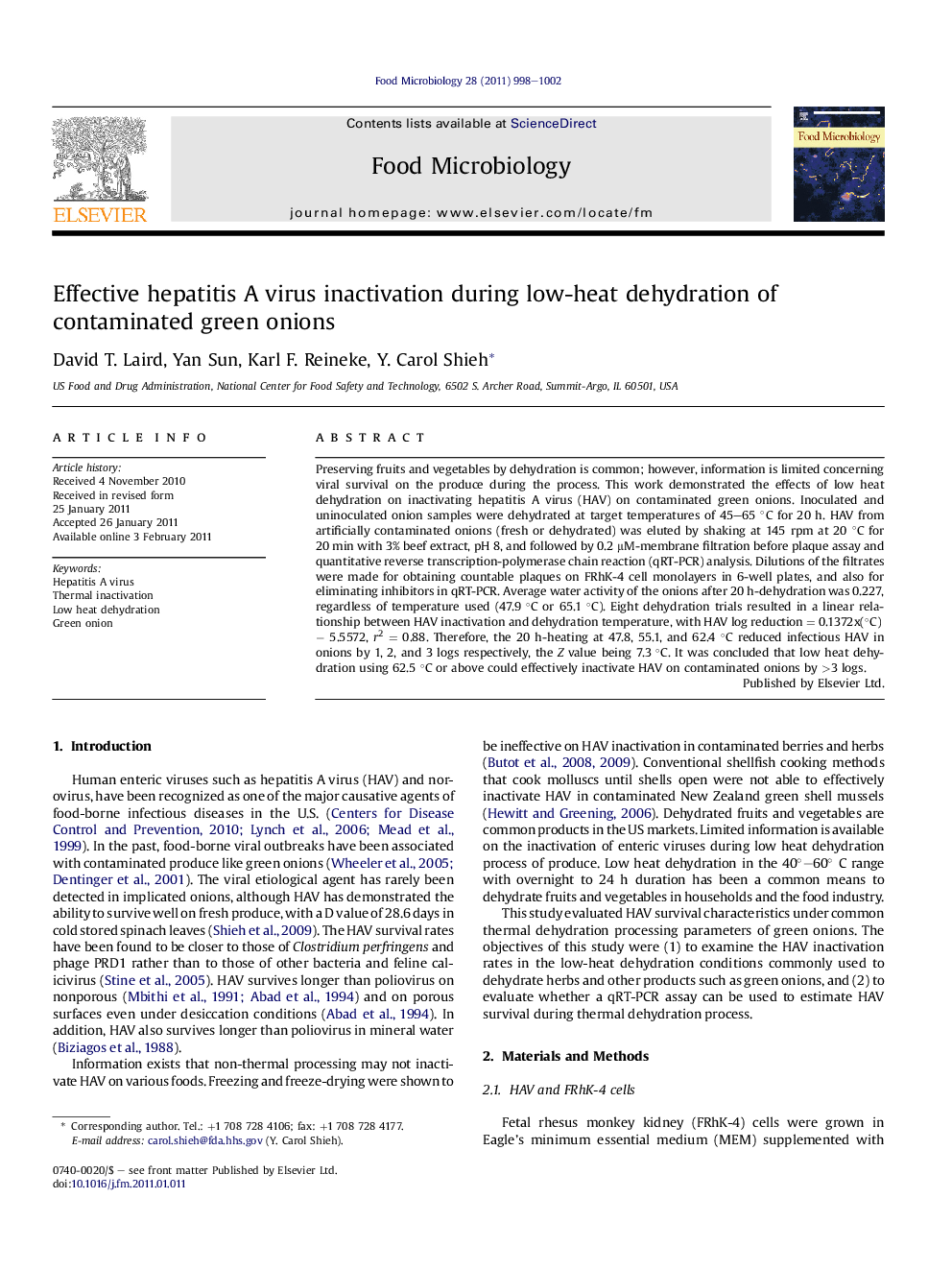| Article ID | Journal | Published Year | Pages | File Type |
|---|---|---|---|---|
| 4363162 | Food Microbiology | 2011 | 5 Pages |
Preserving fruits and vegetables by dehydration is common; however, information is limited concerning viral survival on the produce during the process. This work demonstrated the effects of low heat dehydration on inactivating hepatitis A virus (HAV) on contaminated green onions. Inoculated and uninoculated onion samples were dehydrated at target temperatures of 45–65 °C for 20 h. HAV from artificially contaminated onions (fresh or dehydrated) was eluted by shaking at 145 rpm at 20 °C for 20 min with 3% beef extract, pH 8, and followed by 0.2 μM-membrane filtration before plaque assay and quantitative reverse transcription-polymerase chain reaction (qRT-PCR) analysis. Dilutions of the filtrates were made for obtaining countable plaques on FRhK-4 cell monolayers in 6-well plates, and also for eliminating inhibitors in qRT-PCR. Average water activity of the onions after 20 h-dehydration was 0.227, regardless of temperature used (47.9 °C or 65.1 °C). Eight dehydration trials resulted in a linear relationship between HAV inactivation and dehydration temperature, with HAV log reduction = 0.1372x(°C) − 5.5572, r2 = 0.88. Therefore, the 20 h-heating at 47.8, 55.1, and 62.4 °C reduced infectious HAV in onions by 1, 2, and 3 logs respectively, the Z value being 7.3 °C. It was concluded that low heat dehydration using 62.5 °C or above could effectively inactivate HAV on contaminated onions by >3 logs.
► HAV is inactivated during low heat 20 h-dehydration on inoculated green onions. ► Three logs HAV/onion sample are inactivated after 62.4 °C heating, 20 h ► The Z value is 7.3 °C for HAV on onions, heating between 45 and 65 °C for 20 h ► Accurate virus levels in processed foods are difficult to be determined by qRT-PCR.
